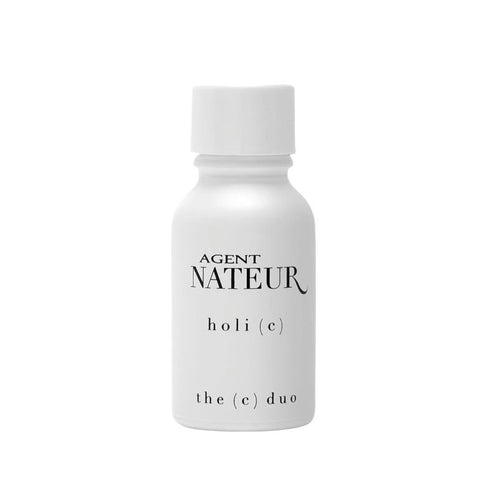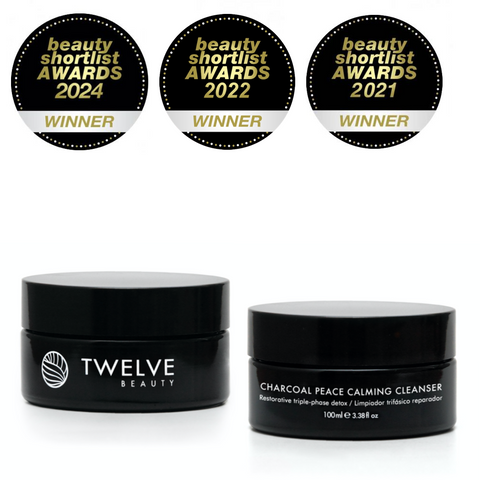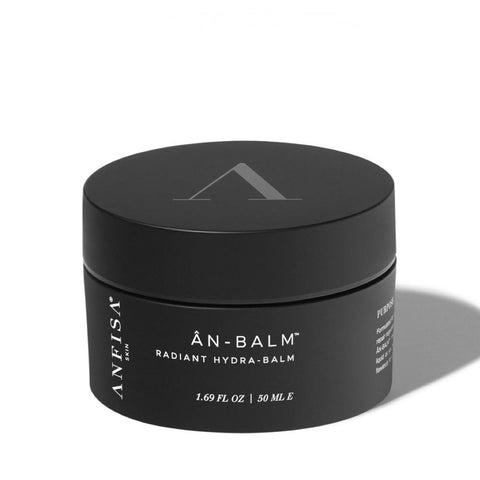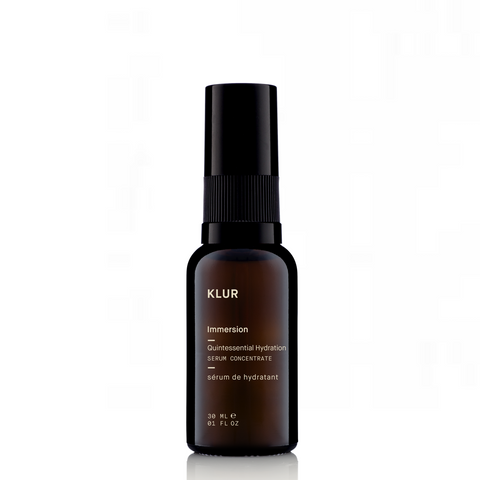Skin Care Ingredients That Can Aggravate Acne
August 14, 2024
Acne is not exclusive to young people. Factors such as dehydration, compromised skin barrier leading to excessive sebum production, accumulation of dead skin cells causing pore blockage, bacteria, inflammation, humid and hot weather, hormones, menstrual cycle, stress, diet, and the use of skincare products with ingredients that can aggravate acne can also lead to adult acne.
We have already discussed 13 bad skincare habits that can worsen acne and skincare and nutritional ingredients that can help improve acne in our previous two articles. You can check them out here:13 Skin Care Habits That Can Worsen Acne and Skincare and Nutritional Ingredients That Can Help Improve Acne 。
Today, let's talk about all the skincare ingredients that can aggravate acne, and what to use instead.
Often, common skincare ingredients can be the culprits behind the acne on your face. It's worth paying attention to whether the skincare products you commonly use contain the following ingredients because simply removing them from your daily skincare routine can significantly improve your acne condition.
| L'Ascorbic Acid or Ascorbic Acid (Pure Vitamin C)
L-Ascorbic Acid and Ascorbic Acid (or pure vitamin C) are commonly used ingredients in vitamin C products due to their potency and effectiveness. However, the challenge lies in the fact that they require a highly acidic pH of 3.5 or below to maintain stability and efficacy. Moreover, they are highly prone to oxidation. Research has shown that our skin is healthiest at a pH of 4.7, which contrasts with the acidity required for the optimal performance of these types of vitamin C.
In other words, daily use of these highly acidic and easily oxidizable L-Ascorbic Acid or pure vitamin C products not only cause irritation to the skin, leading to sensitivity, redness, and increased blackheads, but also disrupt the skin's lipid barrier and microbiome (i.e. the delicate balance of beneficial and bad bacteria that contribute to a healthy skin ecosystem), which can trigger severe inflammations and acne breakouts!!
In the past, we have observed that many customers troubled by acne issues had a habit of using L-Ascorbic Acid or pure vitamin C products. When we advised them to stop using these products, their acne problems disappeared pretty much immediately!
Of course, we are not suggesting that you should completely stop using all vitamin C products, as vitamin C provides antioxidant benefits, brightens and evens skin tone, and promotes collagen synthesis, while being essential for skin health.
In fact, there are multiple forms of vitamin C, and one of them is sodium ascorbyl phosphate (SAP), a highly stable form of vitamin C that does not oxidize easily when exposed to light, oxygen, or water. Although it may not be as potent as L-Ascorbic Acid or pure vitamin C, SAP offers the same skin benefits as other forms vitamin c, and is known for its skin-friendly, non-irritating and non-sensitizing nature, as well as penetrability, as thus is suitable for use on all skin types without concerns.
SAP also has a unique characteristic that other forms of vitamin C lack——it has been scientifically proven to effectively improve acne. In a 12-week clinical trial, a 5% concentration of sodium ascorbyl phosphate demonstrated excellent anti-acne effects in 76.9% of patients, surpassing the efficacy of other prescription acne treatments. Other clinical studies have shown that sodium ascorbyl phosphate has superior acne-fighting effects compared to 5% benzoyl peroxide, without the drying and irritating side effects commonly associated with other acne care ingredients.
Product Recommendation
AGENT NATEUR
holi(c) The C Duo <- Click to Shop
|Scrubs
Facial scrubs contain particles such as microbeads, crushed walnut shells or other similar substances to physically remove the top layer of the skin, thus using it the first few times can indeed help improve acne. This is because without the thick layers of dead skin cells blocking the opening of the pores, bacteria, waste and excess sebum trapped within the pores can be more easily eliminated.
However, in reality, continued use of exfoliating scrubs not only fails to improve acne and blackheads but can actually make the problem worse. There are four reasons for this:
- The back-and-forth friction during the exfoliation process can further irritate already inflamed skin, making acne problems worse and potentially spreading to the surrounding areas.
- Scrubs not only remove the thick layer of dead skin cells but also healthy, newly-formed skin, resulting in a damaged skin barrier. When the skin barrier is compromised, the skin's ability to retain moisture and protect against bacteria and allergens decreases significantly, leading to dehydration, increased sensitivity, and a higher likelihood of acne formation. Additionally, scrubs can cause microscopic tears that are invisible to the naked eye, which means bacteria can easily enter through the openings!
- The friction caused when you scrub your face can result in the formation and exacerbation of acne scars and hyperpigmentation. It is widely known that improving these issues can take weeks, months, or even longer.
- The exfoliating particles are too large and not oil-soluble, which means they cannot effectively dissolve the oil and dirt trapped inside the pores. In other words, they have limited effectiveness in addressing acne, blackheads, and whiteheads at their core.
On the other hand, ingredients like AHAs, BHA (salicylic acid), and PHAs work by dissolving the adhesive bonds between aging cells, thereby promoting their natural shedding and accelerating cell turnover. Now, although acid-based ingredients are generally perceived as highly irritating, the truth is they do not actually impact the healthy, new skin cells, nor do they cause microscopic tears in the skin. In fact, many of these acids have hydrating properties. As long as the formula's ingredients and concentrations are precise, its correct usage method is followed, and high concentrations of glycolic acid is avoided, not only are these acids suitable for all skin types including acne-prone and even sensitive skin, but regular use can also stimulate collagen and hyaluronic acid synthesis, increase the thickness of the dermis, reduce wrinkles, and make the skin appear more plump, smooth, and elastic down the line!
Product Recommendation
AGENT NATEUR
holi(lift Ageless Lifting and Firming Serum <- Click to Shop
Product Recommendation
OUMERE
No. 9 Exfoliant <- Click to Shop
Product Recommendation
AGENT NATEUR
acid(wash) Lactic Acid Brightening Cleanser<- Click to Shop
Product Recommendation
Agent Nateur
holi(bright) Resurface Glass Face Mask <- Click to Shop
|Sulphates
Sulphates, such as sodium lauryl sulfate (SLS) and sodium laureth sulfate (SLES), are cleaning ingredients that produce foam, and can be found in conventional cleansers, shower gels, shampoos, and even toothpaste. They cleanse the skin for sure, but they also strip the skin of its natural oil, and can damage the skin’s lipid barrier, thus weakening its defence ability as well as allowing harmful bacteria and pollutants to enter the body through the skin, which can then lead to irritations, inflammations and redness.
Worse yet, it is also believed to be a contributor to acne, eczema and dermatitis, because not only is it comedogenic, it also has high alkalinity, which allows bacteria such as p.acnes to thrive.
In fact, it is also believed that for those with cystic acne around the mouth and chin, using toothpaste with SLS or SLES might be one of the contributing factors.
Remember, whether or not you have acne, cleansing should always be gentle, and therefore a non-foaming, gentle cleanser is always recommended.
Product Recommendation
TWELVE BEAUTY
Charcoal Peace Calming Cleanser <- Click to Shop
Product Recommendation
MARIE REYNOLDS LONDON
Goji Mallow Cleanse™ <- Click to Shop
|Soap (Including Handmade Soap)
Another thing to stop using is soap. The pH value of the human skin barrier varies between 4.5 and 6.2, depending on age, gender, race, climate, and body location, with a pH value of 4.7 being the healthiest, indicating a slightly acidic nature. However, soap (including handmade soap) typically falls within the alkaline pH range of 8.0 to 11.0! The pH value of acne-prone skin itself tends to be more alkaline, so what happens when alkaline meets alkaline? The result is a progressively weakened skin barrier, leading to the worsening of existing acne conditions.
In addition, just like SLS and SLES, soap excessively washes away the essential sebum from the skin, and compromises the skin's natural moisture retention and defense functions, which can then result in dryness, itching, inflammation, and acne aggravation!
Product Recommendation
TWELVE BEAUTY
Purifying Cleansing Beauty Cream <- Click to Shop
|Moisturizers with Occlusives含封閉性成分的面霜
Occlusive ingredients, including petrolatum (also known as Vaseline), lanolin, mineral oil, coconut oil, beeswax, and shea butter, form a physical barrier on the skin's surface, and prevent moisture loss. Therefore, they are commonly found in many moisturizers and hydrating face masks.
Problem is, they can stick dead skin cells to the skin’s surface, trap oils and dirt inside, clog pores, create an oxygen-free environment that acne bacteria love, and kill off ‘friendly’ bacteria that keep skin healthy, resulting in acne.
In addition, a lot of dermatologist and doctors actually agree that heavy moisturizers, which artificially saturate the skin surface with moisture, disrupts the skin’s natural hydration function and causes it to over-rely on them for moisture and become ‘lazy’. The truth is, in most cases, the skin is capable of maintaining its own hydration levels. By over-moisturizing our skin surface sends a signal to its water reservoirs to halt production of our skin’s natural hydrators glycosaminoglycans and natural moisturizing factors. This would lead to the thinning of our epidermis, and a decreased ability in moisture retention, and in the end, creating a skin environment that always needs heavier moisturizers, and is always sensitive and prone to acne.
Therefore, to improve both acne and dryness issues, consider replacing moisturizing creams that contain a high amount of occlusive ingredients with facial oils and lightweight moisturizers. This approach not only nourishes skin cells, repairs the skin barrier, and provides moisture, but also helps restore the skin's natural moisturizing mechanism. Once the skin starts producing its own glycosaminoglycans and natural moisturizing factors again, the skin will feel less dry or tight, and better yet, with fewer acne.
Product Recommendation
MARIE REYNOLDS LONDON
Reson8™ <- Click to Shop
Product Recommendation
AGENT NATEUR
holi(crème) Filter Face Crème <- Click to Shop
Product Recommendation
MARIE REYNOLDS LONDON
Ceramide Complex Supercharger <- Click to Shop
Product Recommendation
KLUR
Unseasonal Kind Lipid Replenishment Oil <- Click to Shop
Product Recommendation
ANFISA
ÂN-BALM Radiant Hydra Balm <- Click to Shop
|Benzoyl Peroxide
Many acne care products contain benzoyl peroxide, which effectively kills acne-causing bacteria. While it does have the ability to eliminate bacteria, benzoyl peroxide inherently increases oxidative stress on the skin. It can also be irritating to the skin, causing dryness, redness, worsening inflammation, and even accelerating the aging process of skin cells. The chances of having post-inflammatory hyperpigmentation formation, i.e. acne marks, also significantly increase.
What alternatives are there then, if benzoyl peroxide is not the way to go?
Salicylic acid (BHA) is an oil-soluble ingredient that can easily penetrate the lipid layer of the skin and pores to unclog pores, reduce sebum production, and combat inflammation, thereby preventing and improving blackheads, whiteheads, and acne lesions. Additionally, sodium ascorbyl phosphate (SAP), the form of vitamin C mentioned earlier, has been clinically proven to have better acne-fighting effects than 5% benzoyl peroxide yet without its side effects!
Product Recommendation
KLUR
Brilliant Light <- Click to Shop
|Low-Molecular Weight Hyaluronic Acid
First of all, let's correct your existing understanding of hyaluronic acid.
Hyaluronic acid is often touted as a skincare ingredient that can hold up to 1,000 times its weight in water, and thus is an excellent hydrating ingredient. You've probably heard statements like "bringing a thousand times of hydration to the skin", right?
However, it's essential to know that this claim is based on observations of hyaluronic acid as a substance on its own without any other influencing factors in a laboratory setting. It doesn't actually reflect its actual function as a skincare ingredient. Just think about it, if it could truly bring a thousand times of water to the skin, then 1ml of hyaluronic acid would bring 1,000ml (1 liter) of water to the skin. Does that sound plausible to you, at all?
Let's set aside our preconceived notions about hyaluronic acid and focus on reality.
As a skincare ingredient, hyaluronic acid helps draw water from the surrounding environment to the skin's surface. Moreover, since natural hyaluronic acid molecules are quite large, it tends to stay on the skin's surface and form a breathable barrier that locks in moisture.
Now, due to the large molecular size of typical hyaluronic acid, it can feel sticky upon applicatino in higher concentrations, and may even cause product pilling when used in combination with other products. Therefore, many brands break down the molecules to smaller sizes to facilitate deeper penetration into the skin.
This approach however, brings two significant issues.
Firstly, when the humidity is below 70% (such as in air-conditioned environments), the smaller hyaluronic acid molecules that have penetrated deeper into the skin can't easily absorb water vapor from the air to replenish the skin with water. Instead, they can accelerate the drawing of water from the dermis (the second layer of the skin) to the epidermis, leading to even faster water loss and a sensation of dryness and tightness in the deeper layers of the skin.
Secondly, when hyaluronic acid is broken down into ultra-low molecular weights, or even nano-sized particles (≤ 25 kDa) to aid penetration, there is a possibility that it can carry bacteria and harmful substances to the deeper layers of the skin. If your skin is already compromised or sensitive, it can lead to acne, redness, sensitivity, and inflammation issues.
Therefore, while high-molecular weight hyaluronic acid is an excellent skincare ingredient, it is best for acne-prone, sensitive, or prone-to-clogging skin types to avoid products that claim to use nano-sized, ultra-low molecular weight or high concentrations of hyaluronic acid, as they have a high likelihood of triggering inflammation and acne, which outweighs any potential benefits.
Product Recommendation
EATH LIBRARY
The Pure Wonder Active Serum <- Click to Shop
Product Recommendation
KLUR
Immersion Serum Concentrate <- Click to Shop
|Drying Alcohol
Drying, volatile alcohol are commonly listed as Alcohol, Ethanol, Alcohol Denat., Isopropyl Alcohol, Methanol, and SD alcohol (or SD Alcohol 40) in skincare products' ingredient lists. Due to their ability to provide a lightweight, refreshing feeling to the the skin whilst aiding ingredient penetration, these ingredients are often found in skincare products, especially those targeting oily and acne-prone skin.
However, it's important to note that they can easily irritate the skin and excessively strip away the skin's natural sebum, which compromises the skin's lipid barrier. This can result in a significant reduction of the skin's moisture retention function and its ability in defending against bacteria and allergens, leading to issues such as more aggravated acne, dryness, and sensitivity.
|Sodium Chloride (aka salt)
Don't assume that salt is not used in skincare and makeup products! Many skincare and makeup products do contain sodium chloride (salt) because it can thicken formulations to help achieve desired textures.
The problem is, sodium chloride can easily clog pores, so those with acne-prone skin must avoid using skincare and makeup products that contain this ingredient.
|Isopropyl
Isopropyl Myristate, Isopropyl Palmitate, Isopropyl Linoleate, and Isopropyl Lanolin are all texture-enhancing agents, penetration enhancers, and emollients commonly found in serums, creams, and eye creams.
Although they are believed to not worsen existing acne, they are highly comedogenic and can easily contribute to the formation of new acne, especially comedones!
In other words, if you are prone to clogged pores and susceptible to acne or milia, it is advisable to avoid products containing these ingredients.
Also in The Journal

The Anti-Aging Gold Standard: How Retinol Reshapes The Skin
November 12, 2025
Learn why retinol is the gold standard for anti-aging, how it works, what similar ingredients exist, and some common myths and misconceptions.

The Gut-Skin Connection: The Path to Healthy Skin
October 26, 2025
Acne, eczema, rosacea, and sensitivity can all be linked to the gut health, and even gluten? Learn all about the connection between the gut and the skin.

The Secret to Reversing Skin Aging! How Growth Factors & Peptides Help Turn Back the Clock
October 13, 2025
Tired of wrinkles, sagging skin, lack of elasticity, inflammation, dryness, and even hair loss? Learn how growth factors and peptides reverse skin aging.
+Recent Articles
-
The Anti-Aging Gold Standard: How Retinol Reshapes The Skin
November 12, 2025
-
The Gut-Skin Connection: The Path to Healthy Skin
October 26, 2025
-
The Secret to Reversing Skin Aging! How Growth Factors & Peptides Help Turn Back the Clock
October 13, 2025
-
The Best Ways and Times to Take Different Supplements
August 19, 2025
-
Luxury vs. Budget-Friendly Skincare Products——What Are Their Differences?
August 06, 2025
-
How to Prevent and Improve Post-Inflammatory Hyperpigmentation (PIH)
July 10, 2025
-
How to Prevent and Improve Post-Inflammatory Erythema (PIE)
July 08, 2025
-
The Ultimate Cleansing Guide to Improve Skin Conditions
June 03, 2025
-
Do You Have Sugar Face? How Does Sugar Affect Our Skin and Appearance?
May 20, 2025
-
Do You Have Gluten Face? How Does Gluten Affect Our Skin and Appearance?
April 15, 2025
Subscribe to get skincare knowledge delivered to your inbox!



















